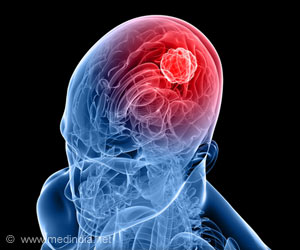- Detecting brain cancer at the earliest possible stage enables a good clinical outcome
- Brain cancer diagnosis is a difficult task as common symptoms are not specific to cancer
- To fill this gap, researchers have developed a blood test using mathematical models
Glioblastoma Multiforme
Go to source) a type of cancer affecting the brain or spine could make the diagnosis earlier and more effective. This finding is published in the journal The Royal Society Interface. This finding was part of the wider University of Bristol-led CRUK project to develop an affordable, point-of-care blood test to diagnose brain cancer. This cross-disciplinary project combines biomarker discovery, the development of fluorescent nanoparticles, and new testing techniques with computational modeling.
How do you Detect Brain Cancer Early?
In this recent study mathematical models were developed and paired with experimental data. The researchers found that for the prospective GBM biomarker Glial fibrillary acidic protein (GFAP) lowering the current biomarker threshold could lead to earlier detection of GBMs.These mathematical models could be used to examine and compare new biomarkers and tests for brain cancer as they emerge.
This new study provides the basis for further clinical data on the impact of lowering the current detection threshold for the known biomarker, GFAP, to allow earlier detection of GBMs using blood tests (2✔ ✔Trusted Source
Liquid biopsies for early diagnosis of brain tumours: in silico mathematical biomarker modelling
Go to source).
With further experimental data, it may also be possible to quantify cancer and patient heterogeneities and incorporate errors into our models and predictions for blood levels for different cancers.
Researchers have also demonstrated how our models can be combined with other diagnostics such as scans to enhance clinical insight to develop more personalized and effective treatments (3✔ ✔Trusted Source
Glioblastoma: Is There Any Blood Biomarker with True Clinical Relevance?
Go to source).
References:
- Glioblastoma Multiforme - (https://www.aans.org/en/Patients/Neurosurgical-Conditions-and-Treatments/Glioblastoma-Multiforme)
- Liquid biopsies for early diagnosis of brain tumours: in silico mathematical biomarker modelling - (https://royalsocietypublishing.org/doi/10.1098/rsif.2022.0180)
- Glioblastoma: Is There Any Blood Biomarker with True Clinical Relevance? - (https://www.ncbi.nlm.nih.gov/pmc/articles/PMC7461098/)















